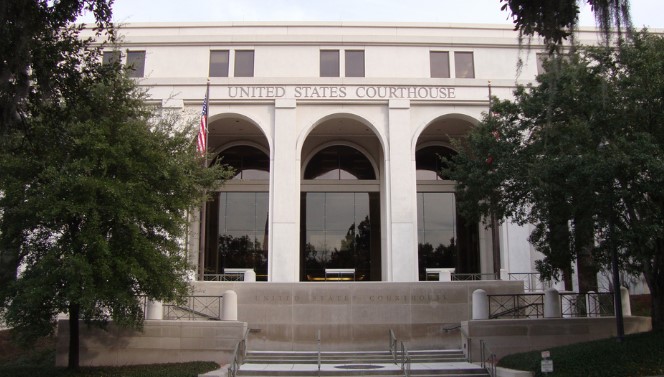By Jay Waagmeester, Florida Phoenix
Escambia County did not violate students’ First Amendment rights in keeping from them a book about two male penguins raising a chick together, a federal judge found this week.
In a suit between the authors of the book and the Escambia County School Board, Chief U.S. District Judge Allen Winsor sided with the county.
The suit focuses on Escambia County’s removal from its school libraries of “And Tango Makes Three,” a book about two male penguins, Roy and Silo, raising a penguin chick, Tango, in a zoo.
The plaintiffs, authors Peter Parnell and Justin Richardson, as well as an unnamed student, alleged the book was removed “based solely on disagreement with the book’s viewpoint,” which they said “illustrates that same-sex parents exist, that they can adopt and raise offspring, and have healthy and happy families.”
Escambia County argued that curation in a school library does not implicate student or author First Amendment rights.
“I agree, and that is enough to resolve this case,” Winsor wrote.
In a summary judgement, Winsor found that students and the authors were not discriminated against based on content or viewpoint, nor were students’ rights to receive information impaired.
“In sum, the board did not violate the First Amendment when it decided to remove Tango from its school libraries. This does not, of course, keep the book (or any viewpoint in it) from [student] B.G. or any other student,” Winsor wrote.
“The Escambia County School Board has simply decided students wanting this particular book will have to get it elsewhere.”
Curation and government speech
In an 18-page order, Winsor, an appointee of President Donald Trump, spent much of it discussing curation and government speech.
“There are fair arguments that a library’s selecting books is not expressive at all,” Winsor wrote. “School officials decide what books to have in the library, just as they decide what furniture to have in the classroom and what food to provide for school lunch. At some level, any decision could be considered expressive: one could argue that a school district’s decision to have peas and carrots for lunch constitutes its saying it thinks peas and carrots are worth eating.”
“And of course books themselves are expressive, unlike most school lunches. All of this is to say that it is unclear whether making library books available in school libraries constitutes expression.”
In August, a federal judge in Orlando ruled the state law banning school library books to be “overbroad and unconstitutional.”
The Escambia County case was filed in September 2023.
“The good news is I need not decide the difficult government-speech issue to resolve the case. If book curation is government speech, the board wins on the merits because the First Amendment would not reach its speech. And even if book curation is not government speech, the board still wins on the merits: when the government decides which books to choose, it is not creating a forum for others to speak, and it is not otherwise implicating Plaintiffs’ First Amendment rights. Either way, the First Amendment offers Plaintiffs no protection, and the board is entitled to summary judgment.”
The case was originally filed in the Middle District with complaints against Lake County officials and state education officials, although it was transferred to the Northern District and defendants including the superintendent of Escambia County were dropped, except for the Escambia County’s school board.
“The Author Plaintiffs have no First Amendment right to speak through the library, and [student] B.G. has no First Amendment right to receive the Author Plaintiffs’ message through the library,” Winsor wrote.


It’s abundantly clear that Democrats are pro trans, pro antifa, pro sexual deviancy, pro general deviancy and everything else that is wrong.
If its sick? Democrats are all for it.